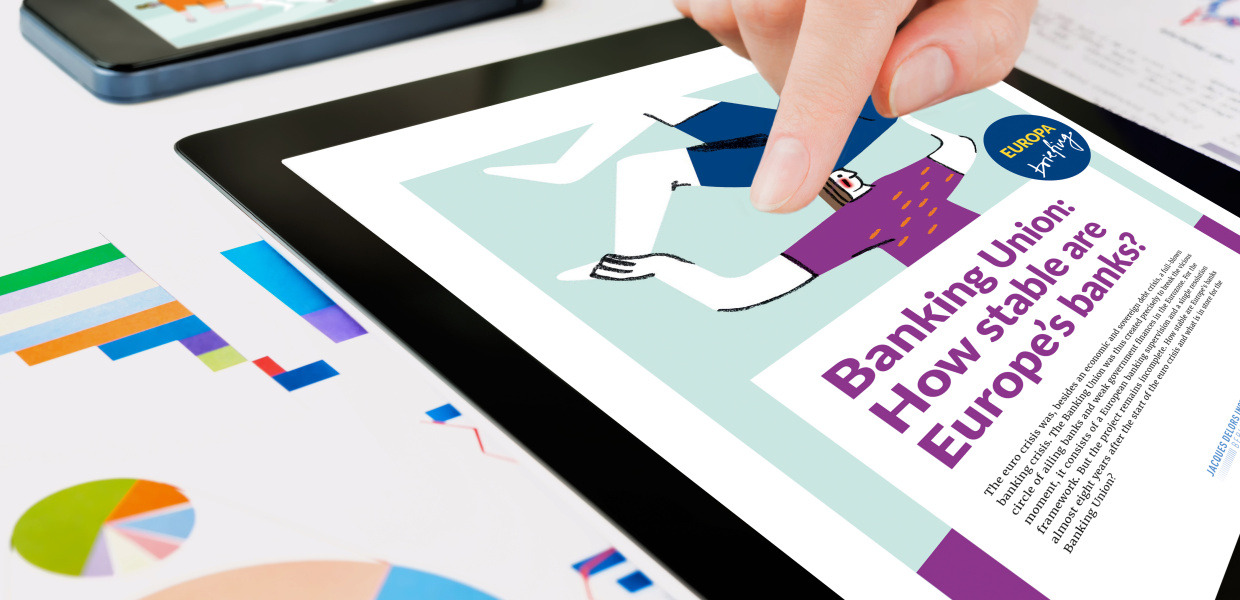The interplay between banks and government finances contributed to the escalation of the euro crisis. On the one hand, governments tried to prevent the collapse of the financial system during the crisis and supported their banking sectors with loans or guarantees. On the other hand, banks suffered from weak government finances since they traditionally hold a lot of their own government’s sovereign debt. The Banking Union was thus created precisely to break the vicious circle of ailing banks and weak government finances in the Eurozone.
The present Europa Briefing analyzes how almost eight years after the beginning of the crisis the stability of European banks has been ordered and how the banking union is going.
